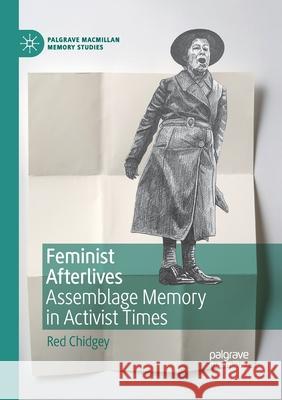Feminist Afterlives: Assemblage Memory in Activist Times » książka
topmenu
Feminist Afterlives: Assemblage Memory in Activist Times
ISBN-13: 9783030404406 / Angielski / Miękka / 2020 / 215 str.
Feminist Afterlives: Assemblage Memory in Activist Times
ISBN-13: 9783030404406 / Angielski / Miękka / 2020 / 215 str.
cena 229,43
(netto: 218,50 VAT: 5%)
Najniższa cena z 30 dni: 219,73
(netto: 218,50 VAT: 5%)
Najniższa cena z 30 dni: 219,73
Termin realizacji zamówienia:
ok. 16-18 dni roboczych.
ok. 16-18 dni roboczych.
Darmowa dostawa!
Kategorie:
Kategorie BISAC:
Wydawca:
Palgrave MacMillan
Seria wydawnicza:
Język:
Angielski
ISBN-13:
9783030404406
Rok wydania:
2020
Dostępne języki:
Numer serii:
000406823
Ilość stron:
215
Waga:
0.27 kg
Wymiary:
21.01 x 14.81 x 1.22
Oprawa:
Miękka
Dodatkowe informacje:
Wydanie ilustrowane











